Fleurs du Mal Magazine


Or see the index
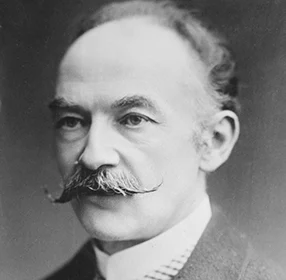
Snow in the Suburbs
Every branch big with it,
Bent every twig with it;
Every fork like a white web-foot;
Every street and pavement mute:
Some flakes have lost their way, and grope back upward when
Meeting those meandering down they turn and descend again.
The palings are glued together like a wall,
And there is no waft of wind with the fleecy fall.
A sparrow enters the tree,
Whereon immediately
A snow-lump thrice his own slight size
Descends on him and showers his head and eye
And overturns him,
And near inurns him,
And lights on a nether twig, when its brush
Starts off a volley of other lodging lumps with a rush.
The steps are a blanched slope,
Up which, with feeble hope,
A black cat comes, wide-eyed and thin;
And we take him in.
Thomas Hardy
(1840 – 1928)
Snow in the Suburbs
• fleursdumal.nl magazine
More in: # Classic Poetry Archive, 4SEASONS#Winter, Archive G-H, Archive G-H, Hardy, Thomas
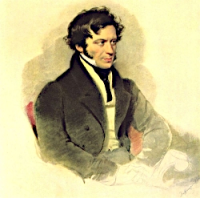
Sehnsucht nach Liebe
Alles liebet, alles scherzet
In der fröhlichen Natur;
Alles küsset, alles herzet
Auf den Höhn in Wald und Flur!
Läßt der holde Lenz sich nieder,
Sanft umschwärmt vom lauen West,
Senkt der Vogel sein Gefieder,
Bauet liebend sich ein Nest.
Und der Löwe flieht das Morden,
Das sonst höchste Lust ihm schafft;
Er verläßt der Brüder Horden,
Huldigt Amors Zauberkraft.
Und dir soll ich mich entziehen,
Die uns menschlich fühlen lehrt?
Liebe! ach, dich soll ich fliehen,
Die der Tiger selbst verehrt?
Ich allein nur soll dich meiden,
Holde Spenderin der Lust?
Ich soll wilde Tiere neiden
Um das Fühlen ihrer Brust?
Nein! dem schönsten aller Triebe
Sei mein fühlend Herz geweiht!
Schenke mir Themirens Liebe,
Amor, Gott der Zärtlichkeit!
Franz Seraphicus Grillparzer
(Wien 1791 – 1872)
Sehnsucht nach Liebe (Gedicht)
• fleursdumal.nl magazine
More in: # Classic Poetry Archive, Archive G-H, Archive G-H, Grillparzer, Franz

Il faut tout perdre
Il faut tout perdre, il faut vous obéir.
Je vous les rends ces lettres indiscrètes,
De votre cœur éloquents interprètes,
Et que le mien eût voulu retenir ;
Je vous les rends. Vos yeux à chaque page
Reconnaîtront l’amour et son langage,
Nos doux projets, vos serments oubliés,
Et tous mes droits par vous sacrifiés.
C’était trop peu, cruelle Éléonore,
De m’arracher ces traces d’un amour
Payé par moi d’un éternel retour ;
Vous ordonnez que je vous rende encore
Ces traits chéris, dont l’aspect enchanteur
Adoucissait et trompait ma douleur.
Pourquoi chercher une excuse inutile,
En reprenant ces gages adorés
Qu’aux plus grands biens j’ai toujours préférés ?
De vos rigueurs le prétexte est futile.
Non, la prudence et le devoir jaloux
N’exigent pas ce double sacrifice.
Mais ces écrits qu’un sentiment propice
Vous inspira dans des moments plus doux,
Mais ce portrait, ce prix de ma constance,
Que sur mon cœur attacha votre main,
En le trompant, consolaient mon chagrin :
Et vous craignez d’adoucir ma souffrance ;
Et vous voulez que mes yeux désormais
Ne puissent plus s’ouvrir sur vos attraits,
Et vous voulez, pour combler ma disgrâce,
De mon bonheur ôter jusqu’à la trace.
Ah ! j’obéis, je vous rends vos bienfaits.
Un seul me reste, il me reste à jamais.
Oui, malgré vous, qui causez ma faiblesse,
Oui, malgré moi, ce cœur infortuné
Retient encore et gardera sans cesse
Le fol amour que vous m’avez donné.
Évariste de Parny
(1753-1814)
Il faut tout perdre
Élégies (1784)
• fleursdumal.nl magazine
More in: # Classic Poetry Archive, Archive O-P, Archive O-P

To a Wreath of Snow
O transient voyager of heaven!
O silent sign of winter skies!
What adverse wind thy sail has driven
To dungeons where a prisoner lies?
Methinks the hands that shut the sun
So sternly from this morning’s brow
Might still their rebel task have done
And checked a thing so frail as thou.
They would have done it had they known
The talisman that dwelt in thee,
For all the suns that ever shone
Have never been so kind to me!
For many a week, and many a day
My heart was weighed with sinking gloom
When morning rose in mourning grey
And faintly lit my prison room
But angel like, when I awoke,
Thy silvery form so soft and fair
Shining through darkness, sweetly spoke
Of cloudy skies and mountains bare;
The dearest to a mountaineer
Who, all life long has loved the snow
That crowned her native summits drear,
Better, than greenest plains below.
And voiceless, soulless, messenger
Thy presence waked a thrilling tone
That comforts me while thou art here
And will sustain when thou art gone
Emily Brontë
(1818 – 1848)
To a Wreath of Snow
• fleursdumal.nl magazine
More in: # Classic Poetry Archive, 4SEASONS#Winter, Archive A-B, Archive C-D, Brontë, Anne, Emily & Charlotte

Winter – A Dirge
The wintry west extends his blast,
And hail and rain does blaw;
Or, the stormy north sends driving forth
The blinding sleet and snaw:
While, tumbling brown, the burn comes down,
And roars frae bank to brae;
And bird and beast in covert rest,
And pass the heartless day.
“The sweeping blast, the sky o’ercast,”
The joyless winter-day
Let others fear, to me more dear
Than all the pride of May:
The tempest’s howl, it soothes my soul,
My griefs it seems to join;
The leafless trees my fancy please,
Their fate resembles mine!
Thou Power Supreme whose mighty scheme
These woes of mine fulfil,
Here, firm, I rest; they must be best,
Because they are Thy will!
Then all I want—O do Thou grant
This one request of mine.—
Since to enjoy Thou dost deny,
Assist me to resign.
Robert Burns
(1759 – 1796)
Winter – A Dirge
• fleursdumal.nl magazine
More in: # Classic Poetry Archive, 4SEASONS#Winter, Archive A-B, Archive A-B, Burns, Robert
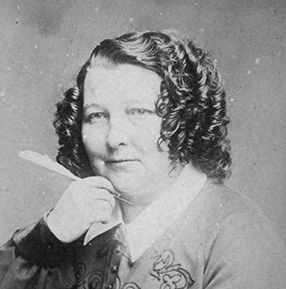
Winter
We know ’tis good that old Winter should come,
Roving awhile from his Lapland home;
’Tis fitting that we should hear the sound
Of his reindeer sledge on the slippery ground:
For his wide and glittering cloak of snow
Protects the seeds of life below;
Beneath his mantle are nurtured and born
The roots of the flowers, the germs of the corn.
The whistling tone of his pure strong breath
Rides purging the vapours of pestilent death.
I love him, I say, and avow it again,
For God’s wisdom and might show well in his train.
But the naked—the poor! I know they quail
With crouching limbs from the biting gale;
They pine and starve by the fireless hearth,
And weep as they gaze on the frost-bound earth.
Stand nobly forth, ye rich of the land,
With kindly heart and bounteous hand;
Remember ’tis now their season of need,
And a prayer for help is a call ye must heed.
A few of thy blessings, a tithe of thy gold,
Will save the young, and cherish the old.
’Tis a glorious task to work such good—
Do it, ye great ones! Ye can, and ye should.
He is not worthy to hold from heaven
The trust reposed, the talents given,
Who will not add to the portion that’s scant,
In the pinching hours of cold and want.
Oh! listen in mercy, ye sons of wealth,
Basking in comfort and glowing with health;
Give whate’er ye can spare, and be ye sure
He serveth his Maker who aideth the poor.
Eliza Cook
(1818 – 1889}
Winter
From: Melaia and Other Poems (1840)
• fleursdumal.nl magazine
More in: # Classic Poetry Archive, 4SEASONS#Winter, Archive C-D, Archive C-D
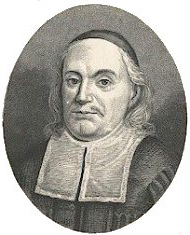
Ich hab oft
bei mir selbst gedacht
Ich hab oft bei mir selbst gedacht,
Wann ich den Lauf der Welt betracht,
Ob auch das Leben dieser Erd
Uns gut sei und des Wünschens wert,
Und ob nicht der viel besser tu,
Der sich fein zeitlich legt zur Ruh.
Denn, Lieber, denk und sage mir:
Was für ein Stand ist wohl allhier,
Dem nicht sein Angst, sein Schmerz und Weh
Alltäglich überm Haupte steh?
Ist auch ein Ort, der Kummers frei
Und ohne Klag und Sorgen sei?
Sieh unsers ganzen Lebens Lauf:
Ist auch ein Tag von Jugend auf,
Der nicht sein eigne Qual und Plag
Auf seinem Rücken mit sich trag?
Ist nicht die Freude, die uns stillt,
Auch selbst mit Jammer überfüllt?
Hat einer Glück und gute Zeit,
Hilf Gott, wie tobt und zürnt der Neid!
Hat einer Ehr und große Würd,
Ach, mit was großer Last und Bürd
Ist, der vor andern ist geehrt,
Vor andern auch dabei beschwert!
Ist einer heute gutes Muts,
Ergötzt und freut sich seines Guts:
Eh ers vermeint, fährt sein Gewinn
Zusamt dem guten Mute hin!
Wie plötzlich kommt ein Ungestüm
Und wirft die großen Güter üm!
Bist du denn fromm und fleuchst die Welt
Und liebst Gott mehr als Gold und Geld,
So wird dein Ruhm, dein Schmuck und Kron
In aller Welt zu Spott und Hohn;
Denn wer der Welt nicht heucheln kann,
Den sieht die Welt für albern an.
Nun, es ist wahr, es steht uns hier
Die Trübsal täglich vor der Tür,
Und findt ein jeder überall
Des Kreuzes Not und bittre Gall.
Sollt aber drum der Christen Licht
Ganz nichts mehr sein? Das glaub ich nicht.
Ein Christe, der an Christo klebt,
Und stets im Geist und Glauben lebt,
Dem kann kein Unglück, keine Pein
Im ganzen Leben schädlich sein;
Gehts ihm nicht allzeit wie es soll,
So ist ihm dennoch allzeit wohl.
Hat er nicht Gold, so hat er Gott,
Fragt nicht nach böser Leute Spott,
Verwirft mit Freuden und verlacht
Der Welt verkehrten Stolz und Pracht.
Sein Ehr ist Hoffnung und Geduld,
Sein Hoheit ist des Höchsten Huld.
Es weiß ein Christ und bleibt dabei,
Daß Gott sein Freund und Vater sei;
Er hau, er brenn, er stech, er schneid,
Hier ist nichts, das uns von ihm scheid,
Je mehr er schlägt, je mehr er liebt,
Bleibt fromm, ob er uns gleich betrübt.
Laß alles fallen, wie es fällt:
Wer Christi Lieb im Herzen hält,
Der ist ein Held und bleibt bestehn,
Wann Erd und Himmel untergehn;
Und wann ihn alle Welt verläßt,
Hält Gottes Wort ihn steif und fest.
Des Höchsten Wort dämpft alles Leid
Und kehrts in lauter Lust und Freud;
Es nimmt dem Unglück alles Gift,
Daß, obs uns gleich verfolgt und trifft,
Es dennoch unser Herze nie
In allzu große Trauer zieh.
Ei nun, so mäßge deine Klag!
Ist dieses Leben voller Plag,
Ists dennoch an der Christen Teil
Auch voller Gottes Schutz und Heil.
Wer Gott vertraut und Christum ehrt,
Der bleibt im Kreuz auch unversehrt.
Gleichwie das Gold durchs Feuer geht
Und in dem Ofen wohl besteht,
So bleibt ein Christ durch Gottes Gnad
Im Elendsofen ohne Schad;
Ein Kind bleibt seines Vaters Kind,
Obs gleich des Vaters Zucht empfindt.
Drum, liebes Herz, sei ohne Scheu
Und sieh auf deines Vaters Treu!
Empfindst du auch hier seine Rut,
Er meints nicht bös, es ist dir gut!
Gib dich getrost in seine Händ,
Es nimmt zuletzt ein gutes End.
Leb immerhin, so lang er will!
Ists Leben schwer, so sei du still,
Es geht zuletzt in Freuden aus:
Im Himmel ist ein schönes Haus,
Da, wer nach Christo hier gestrebt,
Mit Christi Engeln ewig lebt!
Paul Gerhardt
(1607 – 1676)
Ich hab oft bei mir selbst gedacht
• fleursdumal.nl magazine
More in: # Classic Poetry Archive, Archive G-H, Archive G-H
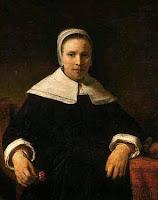
Winter
Cold, moist, young phlegmy winter now doth lie
In swaddling clouts, like new-born infancy;
Bound up with frosts, and fur’d with hail & snows,
And, like an infant, still it taller grows.
December is my first, and now the sun
To the southward Tropick his swift race doth run.
This month he’s hous’d in horned Capricorn,
From thence he ’gins to length the shortened morn,
Through Christendom with great festivity,
Now’s held (but guessed) for blest Nativity.
Cold, frozen January next comes in,
Chilling the blood, and shrinking up the skin.
In Aquarius now keeps the long-wish’d sun,
And northward his unwearied course doth run.
The day much longer than it was before,
The cold not lessened, but augmented more.
Now toes and ears, and fingers often freeze,
And travelers their noses sometimes leese.
Moist snowy February is my last,
I care not how the winter-time doth haste.
In Pisces now the golden sun doth shine,
And northward still approaches to the line.
The rivers ’gin to ope, the snows to melt,
And some warm glances from his face are felt;
Which is increased by the lengthen’d day,
Until by’s heat, he drive all cold away.
And thus the year in circle runneth round;
Where first it did begin, in th’ end its found.
Anne Bradstreet
(1612 – 1672)
Winter
• fleursdumal.nl magazine
More in: # Classic Poetry Archive, 4SEASONS#Winter, Archive A-B, Archive A-B, Bradstreet, Anne

Oxford
At home as in no other city, here
summer holds her breath in a dark street
the trees nocturnally scented, lovers like moths
go by silently on the footpaths
and spirits of the young wait,
cannot be expelled, multiply each year.
In the meadows, walks, over the walls
the sunlight, far-travelled, tired and content,
warms the recollections of old men, touching
the hand of the scholar on his book, marching
through quadrangles and arches, at last spent
it leans through the stained windows and falls.
This then is the city of young men, of beginning,
ideas, trials, pardonable follies,
the lightness, seriousness and sorrow of youth.
And the city of the old, looking for truth,
browsing for years, the mind’s seven bellies
filled, become legendary figures, seeming
stones of the city, her venerable towers;
dignified, clothed by erudition and time.
For them it is not a city but an existence;
outside which everything is a pretence:
within, the leisurely immortals dream,
venerated and spared by the ominous hours.
Keith Douglas
(1920 – 1944)
Oxford
• fleursdumal.nl magazine
More in: # Classic Poetry Archive, Archive C-D, Archive C-D, Douglas, Keith, WAR & PEACE

An Opium Fantasy
Soft hangs the opiate in the brain,
And lulling soothes the edge of pain,
Till harshest sound, far off or near,
Sings floating in its mellow sphere.
What wakes me from my heavy dream?
Or am I still asleep?
Those long and soft vibrations seem
A slumberous charm to keep.
The graceful play, a moment stopt,
Distance again unrolls,
Like silver balls, that, softly dropt,
Ring into golden bowls.
I question of the poppies red,
The fairy flaunting band,
While I, a weed with drooping head,
Within their phalanx stand:
‘’Some airy one, with scarlet cap,
The name unfold to me
Of this new minstrel who can lap
Sleep in his melody!”
Bright grew their scarlet-kerchief’d heads.
As freshening winds had blown,
And from their gently-swaying beds
They sang in undertone:
“Oh he is but a little owl,
The smallest of his kin,
Who sits beneath the midnight’s cowl
And makes this airy din.”
“Deceitful tongues of fiery tints!
Far more than this ye know,
That he is your enchanted prince
Doom’d as an owl to go;–
“Nor his fond play for years hath stopt.
But nightly he unrolls
His silver balls, that, softly dropt,
Ring into golden bowls.’
Maria White Lowell
(1821 – 1853)
An Opium Fantasy
• fleursdumal.nl magazine
More in: # Classic Poetry Archive, Archive K-L, Archive K-L, DRUGS & DISEASE & MEDICINE & LITERATURE, Maria White Lowell, Opium-Eaters

Aimer est un destin charmant
Aimer est un destin charmant ;
C’est un bonheur qui nous enivre,
Et qui produit l’enchantement.
Avoir aimé, c’est ne plus vivre,
Hélas ! c’est avoir acheté
Cette accablante vérité,
Que les serments sont un mensonge,
Que l’amour trompe tôt ou tard,
Que l’innocence n’est qu’un art,
Et que le bonheur n’est qu’un songe.
Évariste de Parny
(1753-1814)
Aimer est un destin charmant
Élégies (1784)
• fleursdumal.nl magazine
More in: # Classic Poetry Archive, Archive O-P, Archive O-P
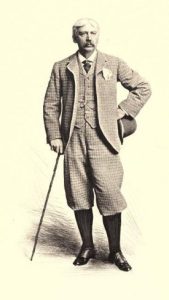
Chiquita
BEAUTIFUL! Sir, you may say so. Thar isn’t her match in the county;
Is thar, old gal,—Chiquita, my darling, my beauty?
Feel of that neck, sir,—thar ‘s velvet! Whoa! Steady,—ah, will you, you vixen!
Whoa! I say. Jack, trot her out; let the gentleman look at her paces.
Morgan!—She ain’t nothin’ else, and I ‘ve got the papers to prove it.
Sired by Chippewa Chief, and twelve hundred dollars won’t buy her.
Briggs of Tuolumne owned her. Did you know Briggs of Tuolumne?
Busted hisself in White Pine, and blew out his brains down in ‘Frisco?
Hedn’t no savey, hed Briggs. Thar, Jack! that ‘ll do, quit that foolin’!
Nothin’ to what she kin do, when she ‘s got her work cut out before her.
Hosses is hosses, you know, and likewise, too, jockeys is jockeys;
And ‘t ain’t ev’ry man as can ride as knows what a hoss has got in him.
Know the old ford on the Fork, that nearly got Flanigan’s leaders?
Nasty in daylight, you bet, and a mighty rough ford in low water!
Well, it ain’t six weeks ago that me and the Jedge and his nevey
Struck for that ford in the night, in the rain, and the water all around us;
Up to our flanks in the gulch, and Rattlesnake Creek just a bilin’,
Not a plank left in the dam, and nary a bridge on the river.
I had the gray, and the Jedge had his roan, and his nevey, Chiquita;
And after us trundled the rocks jest loosed from top of the cañon.
Lickity, lickity, switch, we came to the ford, and Chiquita
Buckled right down to her work, and, afore I could yell to her rider,
Took water jest at the ford; and there was the Jedge and me standing,
And twelve hundred dollars of hoss-flesh afloat, and a-driftin’ to thunder!
Would ye b’lieve it? That night, that hoss, that ar’ filly, Chiquita,
Walked herself into her stall, and stood there, all quiet and dripping:
Clean as a beaver or rat, with nary a buckle of harness,
Just as she swam the Fork,—that hoss, that ar’ filly, Chiquita.
That ‘s what I call a hoss! and—What did you say?—Oh! the nevey?
Drownded, I reckon,—leastways, he never kem back to deny it.
Ye see, the derned fool had no seat, ye could n’t have made him a rider;
And then, ye know, boys will be boys, and hosses—well, hosses is hosses!
1872
Bret Harte
(1836-1902)
Chiquita
• fleursdumal.nl magazine
More in: # Classic Poetry Archive, Archive G-H, Archive G-H, Bret Harte, Western Fiction
Thank you for reading Fleurs du Mal - magazine for art & literature